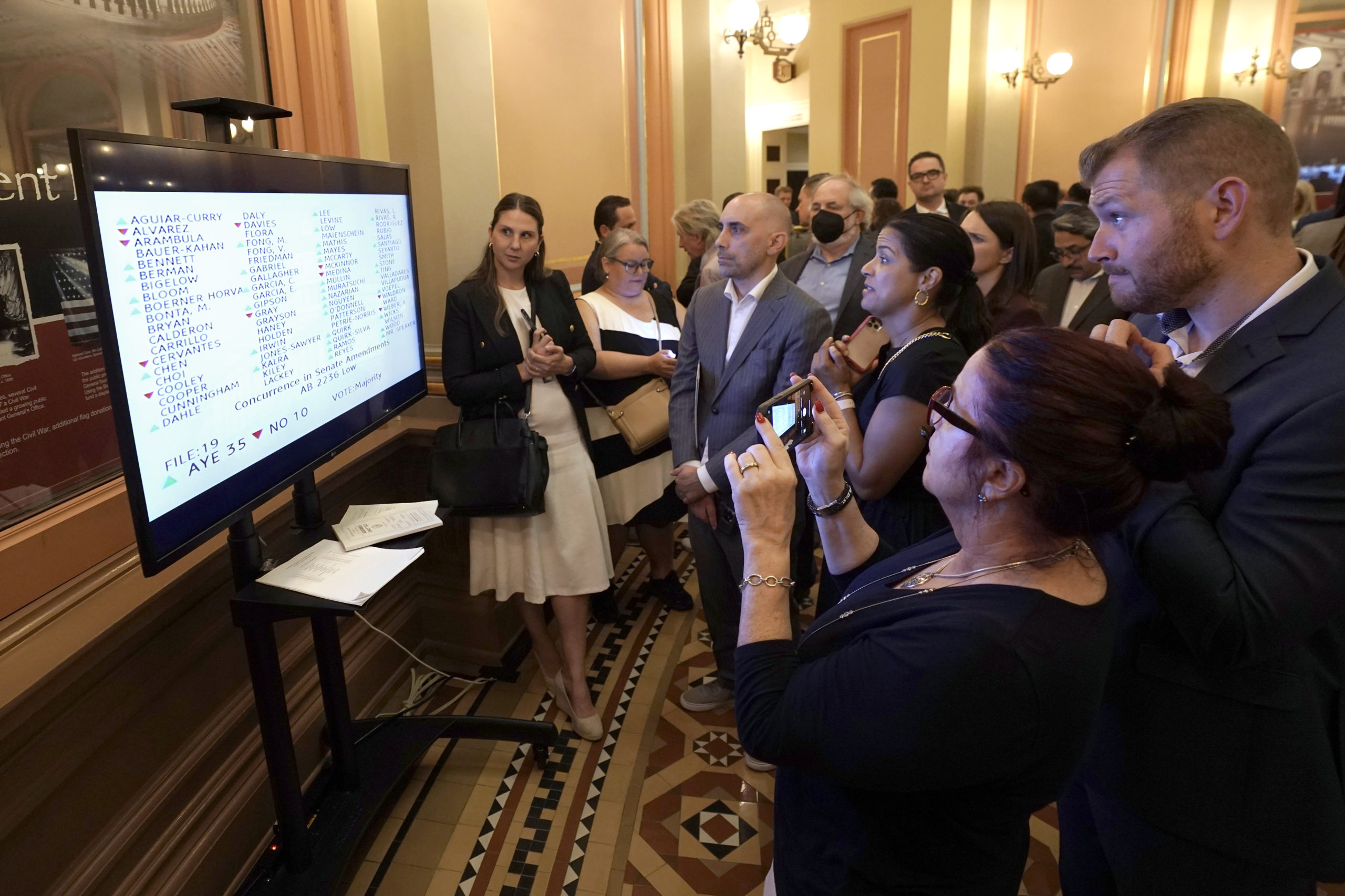Corporate spending in state politics and elections can affect everything from your wallet to your health

Lobbyists gather around a television to watch as bill before the state Assembly is voted on at the Capitol in Sacramento, Calif., Wednesday, Aug. 31, 2022.
Photo: Rich Pedroncelli/AP
Political spending by corporations is big business.
As one corporate executive with experience in business-government relations says, “A company that is dependent on government that does not donate to politicians is engaging in corporate malpractice.”
Our research group heard that statement during a series of interviews with industry insiders that we conducted for a study on corporate political strategy and involvement in U.S. state politics.